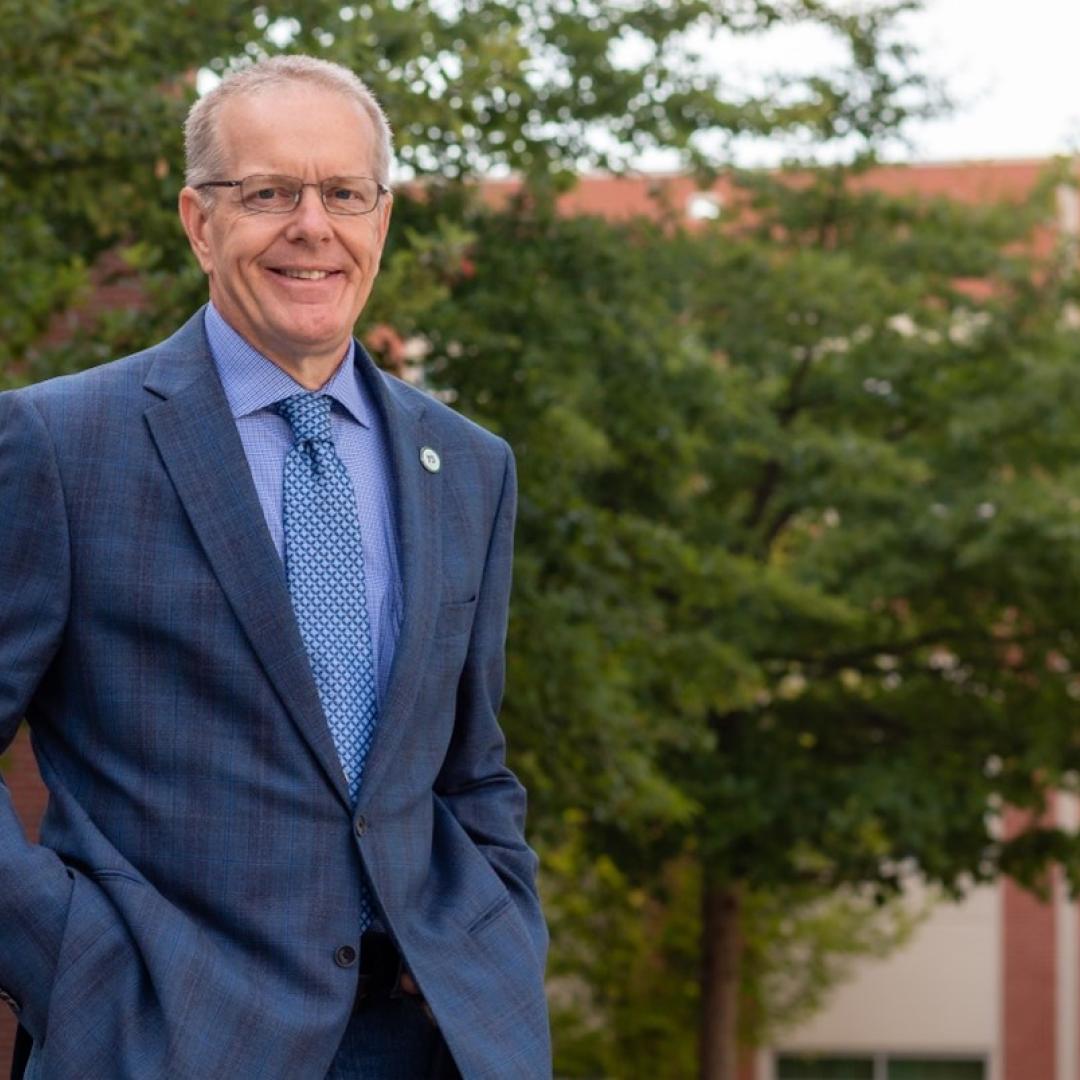
Filter News
Area of Research
- Biology and Environment (22)
- Biology and Soft Matter (1)
- Clean Energy (39)
- Electricity and Smart Grid (1)
- Fuel Cycle Science and Technology (1)
- Functional Materials for Energy (1)
- Fusion and Fission (2)
- Isotopes (1)
- Materials (16)
- Materials for Computing (3)
- National Security (36)
- Neutron Science (5)
- Nuclear Science and Technology (5)
- Supercomputing (32)
- Transportation Systems (1)
News Topics
- (-) Decarbonization (79)
- (-) Molten Salt (8)
- (-) National Security (61)
- (-) Quantum Computing (34)
- 3-D Printing/Advanced Manufacturing (121)
- Advanced Reactors (34)
- Artificial Intelligence (91)
- Big Data (53)
- Bioenergy (91)
- Biology (98)
- Biomedical (58)
- Biotechnology (22)
- Buildings (57)
- Chemical Sciences (63)
- Clean Water (29)
- Climate Change (99)
- Composites (26)
- Computer Science (187)
- Coronavirus (46)
- Critical Materials (26)
- Cybersecurity (35)
- Education (4)
- Element Discovery (1)
- Emergency (2)
- Energy Storage (108)
- Environment (194)
- Exascale Computing (37)
- Fossil Energy (5)
- Frontier (42)
- Fusion (54)
- Grid (62)
- High-Performance Computing (84)
- Hydropower (11)
- Irradiation (3)
- Isotopes (53)
- ITER (7)
- Machine Learning (47)
- Materials (144)
- Materials Science (140)
- Mathematics (7)
- Mercury (12)
- Microelectronics (3)
- Microscopy (51)
- Nanotechnology (60)
- Net Zero (13)
- Neutron Science (131)
- Nuclear Energy (108)
- Partnerships (44)
- Physics (61)
- Polymers (33)
- Quantum Science (69)
- Renewable Energy (2)
- Security (24)
- Simulation (47)
- Software (1)
- Space Exploration (25)
- Statistics (3)
- Summit (57)
- Sustainable Energy (125)
- Transformational Challenge Reactor (7)
- Transportation (97)
Media Contacts
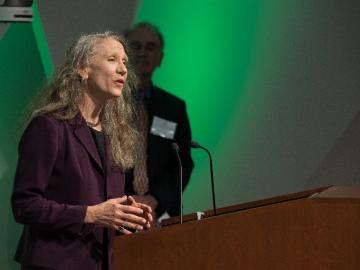
The founder of a startup company who is working with ORNL has won an Environmental Protection Agency Green Chemistry Challenge Award for a unique air pollution control technology.
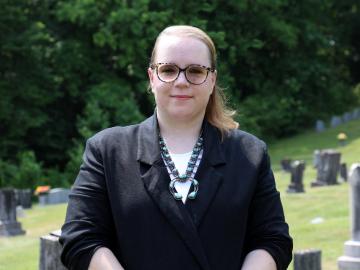
Walters is working with a team of geographers, linguists, economists, data scientists and software engineers to apply cultural knowledge and patterns to open-source data in an effort to document and report patterns of human movement through previously unstudied spaces.
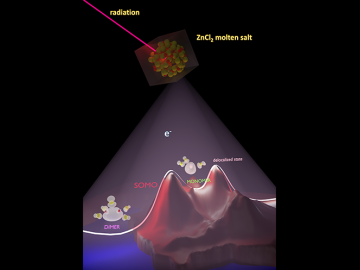
In a finding that helps elucidate how molten salts in advanced nuclear reactors might behave, scientists have shown how electrons interacting with the ions of the molten salt can form three states with different properties. Understanding these states can help predict the impact of radiation on the performance of salt-fueled reactors.
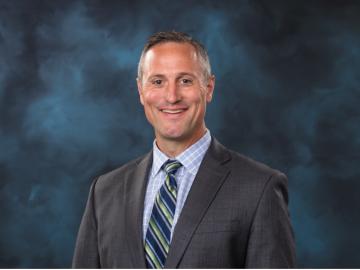
Mike Benson has spent the last 10 years using magnetic resonance imaging systems — much as you find in a hospital — to understand the fluid dynamics of flows around objects and even scaled replicas of cities. He aims to apply MRI scanning to
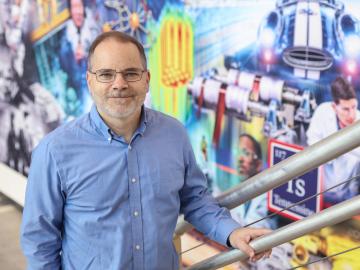
ORNL has been selected to lead an Energy Earthshot Research Center, or EERC, focused on developing chemical processes that use sustainable methods instead of burning fossil fuels to radically reduce industrial greenhouse gas emissions to stem climate change and limit the crisis of a rapidly warming planet.

The Department of Energy’s Oak Ridge National Laboratory announced the establishment of the Center for AI Security Research, or CAISER, to address threats already present as governments and industries around the world adopt artificial intelligence and take advantage of the benefits it promises in data processing, operational efficiencies and decision-making.
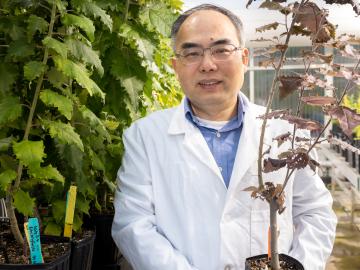
Scientist Xiaohan Yang’s research at the Department of Energy’s Oak Ridge National Laboratory focuses on transforming plants to make them better sources of renewable energy and carbon storage.
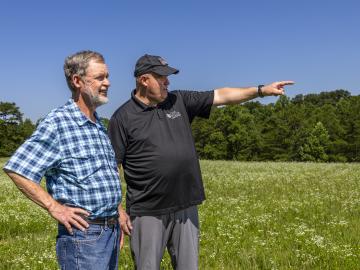
Carl Dukes’ career as an adept communicator got off to a slow start: He was about 5 years old when he spoke for the first time. “I’ve been making up for lost time ever since,” joked Dukes, a technical professional at the Department of Energy’s Oak Ridge National Laboratory.
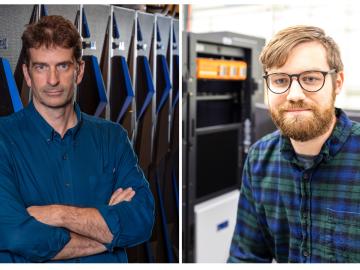
Tom Karnowski and Jordan Johnson of ORNL have been named chair and vice chair, respectively, of the East Tennessee section of the Institute of Electrical and Electronics Engineers, or IEEE.
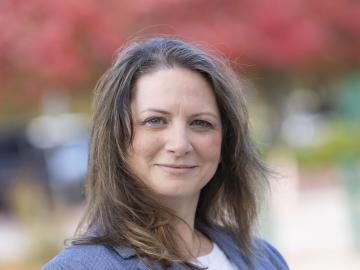
Michelle Kidder, a senior R&D staff scientist at ORNL, has received the American Chemical Society’s Energy and Fuels Division’s Mid-Career Award for sustained and distinguished contributions to the field of energy and fuel chemistry.


